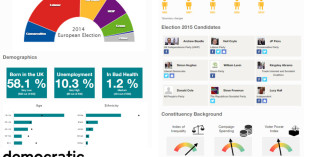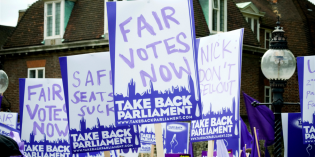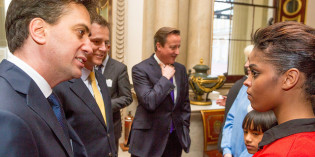
Financialisation, home-ownership, and how democracy became a threat to economic growth
A consensus on the desirability of promoting ‘financial inclusion’has occurred over recent years, with both main parties similarly keen to promote home ownership – despite the methods used to pursue this goal often making the issue of access to afforable housing worse. Craig Berry argues that this broad agenda – financialisation – carries with it […]

Switching off E4 on election day is a bold move, but one that may well backfire
The 2015 General Election is upon is, and despite an uptick amongst registration amongst young people, turnout looks set to again be lop-sided in favour of older voters. In a valiant attempt to contribute in their own small way, the TV channel E4 have pledged to switch off the channel in order to encourage their […]

Political marketing can be an asset rather than a threat to democracy
The once distinct spheres of politics and marketing have become more entwined in recent decades, with mixed results. Clare Lovett explores the strengths and weaknesses of the political marketing approach to ‘selling’ the Labour Party from 1992 to 1997 with a view to demonstrating that, within certain frameworks, political marketing is not a threat but an asset […]

How to use the Democratic Dashboard
Democratic Audit UK recently launched the Democratic Dashboard, a new online tool which seeks to give voters completely impartial and accurate information about their local constituency which might be helpful to them in making up their own minds about how to vote at the 2015 general election. Here, Carl Cullinane and Patrick Dunleavy explain how to use […]

In a multi-party political environment, the First-Past-The-Post electoral system may mitigate polarisation
In this post, Niall Hughes argues that FPTP electoral system performs much better in the context of multi-party politics. Crucially, in a general election a voter’s preferred candidate will depend on the results in other constituencies. As a result, when three parties compete in a general election and voters care about national policy, the problem of polarisation under FPTP […]

The emergence of a genuine system of multiparty politics in the United Kingdom is a positive development for British democracy
In 1955 more than 90% of voters opted to back either Labour or the Conservatives. In 2015, this figure could drop to its lowest ever, even lower than 2010 when only 65% backed the established parties. Many factors lie behind this trend, but it represents a positive development, argues Vittorio Trevitt. An intriguing development that […]

Candidate selection in Northern Ireland: A cold house for women?
Across the UK, there is likely to be an increase in the number of women elected as MPs. However, this does not appear to be the case in Northern Ireland. In this post, Neil Matthews argues that formal candidate selection mechanisms are not to blame for the dearth of women competing in Westminster election. Rather, a […]

An invitation to adventurism: the Fixed-term Parliaments Act can and will crucify a minority government
A spirited argument has broken out on Democratic Audit UK and on other blogs regarding the implications of the Fixed Term Parliaments Act for what kind of Government may emerge from the General Election. In a previous blog, Colin Talbot argued that a minority government could govern relatively comfortably given the Act, which makes bringing […]

The UK election spells the end for the biggest ‘law’ in political science
Voters are again looking beyond the traditional two-party system and look set to put paid to a famous proposition of political science, ‘Duverger’s Law’, writes Democratic Audit UK Director Patrick Dunleavy. Similar PostsEuropean elections 2019: what will happen in England’s South East?European elections 2019: what will happen in Scotland?European elections 2019: what will happen in the […]

The Manifesto for Youth: Young people are demanding to be heard in the General Election
Young voters are very likely to turn out to vote in smaller numbers than older voters at the General Election, with party politics achieving little to no cut through with younger age groups. Despite this, there are signs of encouragement, according to Andy Mycock, who was involved in Huddersfield University’s Manifesto for Youth. Since the […]




 Democratic Audit's core funding is provided by the Joseph Rowntree Charitable Trust. Additional funding is provided by the London School of Economics.
Democratic Audit's core funding is provided by the Joseph Rowntree Charitable Trust. Additional funding is provided by the London School of Economics.